Depression. No matter who you are, no matter what your background, it can strike anyone at any stage in their life. You might think yourself impregnable to this illness: I’m happy – I have a house, a partner, a job I love – how could I ever be depressed? That would never be me.
The truth is, you’re still susceptible to it despite having all these positive influences. If that wasn’t the case, then why do we find many celebrities with outwardly enviable lives, who possess everything anybody could ever want, yet still, they feel overwhelmingly depressed?
Experts are uncertain why a person develops depression, but there are various factors which can contribute towards it. Genetics, traumatic events, personality traits, substance abuse, contracting other serious illnesses, and in women, pregnancy and menopause can all play a part.
History of Depression
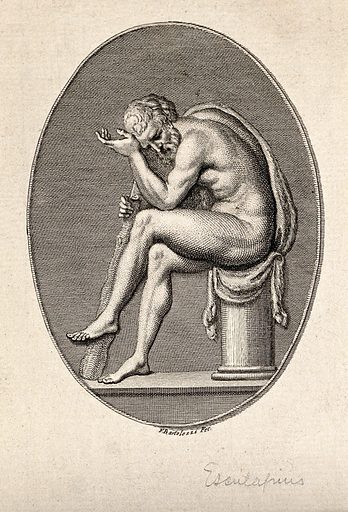
It has plagued our societies for thousands of years. The Ancient Greeks believed it was caused by an imbalance in internal fluids – an excess in black bile produced a “melancholic mind.”
In the 19th century, German psychiatrist, Emil Kraepelin, was the first person to coin the term, “depressive states”, from the more commonly used word, “melancholia”. But he thought depressive states should be placed into two separate categories, “manic depression” and “dementia praecox”.
People who became melancholic due to traumatic life events (such as a bereavement) were deemed manically depressed, thus their depressive state would pass after time. Every other patient, whom seemingly had no reason to be depressed, were considered to suffer from dementia praecox, which was treated as a break from reality such as schizophrenic patients of today.
Sigmund Freud, the father of psychoanalysis, had his own theories on melancholia. Through many decades of psychoanalytic research, he concluded that melancholia was induced in certain people who had suffered an objective loss (such as a romantic breakup), whose egos then manifested that loss subjectively.
This meant that not only did they experience the pain of the objective loss, but their opinions of themselves also became damaged through a narcissistic process called the libidinal cathexis of the ego.
However, it was Swiss psychiatrist, Adolf Meyer, who was the main propagator for how we treat depression today. Whilst Freud believed it was an ailment designed by the ego, Meyer argued that as well as mental factors, depression could be caused by biological and familial inheritances too. He declared that the condition should be widely recognised as “depression”, and that the old term, “melancholia”, should be made defunct.
Throughout the 1800s, mental health was the subject of much deliberation, and enough progress was made so that a comprehensive mental health classification system needed to be designed. Finally, in 1949 the ICD (International Statistical Classification of Diseases, Injuries, and Causes of Death) was created, and in 1952, the DSM (Diagnostic and Statistical Manual of Mental Disorders).
To this day, the ICD and DSM are still regularly used and updated to diagnose all manner of mental health conditions. Old opinions on depression and treatments of it have now thankfully mostly been abolished – for example, electroshock therapy and detention inside asylums. We have a much greater understanding of the illness and how to safely treat it, and many sufferers now experience normal, fulfilling lives.
A Modern Epidemic

But even though we understand depression much better and have more effective treatments for it, why is it that cases only continue to rise? It is a modern societal epidemic, perpetuated by our disconnection from reality.
Technology, social media; the more disconnected from reality we have become, the more people seem to be depressed. From 2005 – when social media first took off – until 2017, a study found that cases of depression in young adults had increased by 52%.
As a global species, connected to one another in more ways than ever before, we have in fact become more and more incapable of developing authentic relationships.
Loneliness is a disastrous problem in many parts of the world. In the UK in 2023, it was found that 1 in 10 people didn’t have any close friends. This is a 50% increase from ten years before – a startling statistic when you think how, during that time, technology and social media have become more prevalent.
Our sense of community is shattered. Most people don’t even know the names of their neighbours. Instead, we are immersed in our screens, worshipping influencers who feed off us like ghouls; we post every aspect of our lives just to get likes, to be given a momentary dopamine rush that, when it wears away, leaves us feeling empty inside.
Our attention spans are destroyed by all this stimulation. We check our phones persistently for no apparent reason; our brains are wired to seek its comfort every minute of the day.
To combat loneliness we drink, smoke, take drugs, and watch porn – quick pleasures that become addictions and further plunder our souls.
The more we fall into the trappings of vices and technology and don’t seek to help our minds, the worse our negative feelings will become. This has proven to be a breeding ground for depression. With so many people lost, how then, can they pull themselves from the shadows?
My Experiences
I too have experienced depression. In fact, I probably suffered with it for much longer than first known. I was a young man who embraced self-destruction, who self-medicated his deep-rooted issues with alcohol and drugs for over ten years.
I was unaware of my depression until 2020. After an overdose and the loss of several friends, I have since undertaken a journey of gradual self-discovery.
It has been a rocky road, where along the way, I failed many times, but now, in 2024 I can finally say I am in a good place. I am aware that I am not completely rid of my demons just yet, but right now, I am the freest of their grasp I have ever been.
It is because of this progress, and because I have researched mental health thoroughly – even completing two courses on the subject – that I believe I can offer tips on how to cope with depression and potentially help others also escape its grip.
I do not claim to be an expert on the subject, but I do have firsthand experiences with the mental illness, and this list of tips will be ones that worked for me.
Although there is no cookie-cutter method to defeating depression, these are tried and tested methods which have proven beneficial for many.
If you feel depressed, please don’t suffer in silence, seek medical help as well as reading this. I can only offer you my own insight, I cannot pluck you from the depths of hell, but hopefully these ten tips will help in some way.
Speak to Somebody

This is the most crucial thing you can do to defeat depression. Women find it much easier than men. For many years, men were stigmatised for expressing their emotions. We had to be the strong, silent types – to talk about our feelings was seen as a sign of weakness.
We simply had to get on with it; work hard; keep our emotions bottled up with the lid screwed on tight. This has had a huge impact on men around the world. Unable to express ourselves through words, we internalise our misery, and unleash it in harrowing ways.
Between 2000 and 2022, the annual suicide rate in England and Wales was three times higher among men than women. This is apparent in my own experiences with suicide. I knew nine people who took their own lives – two were women, the other seven were men.
It is unthinkable for me to say, but every year I expect somebody else to take their own life. Mostly every year since 2013, this has been the case. Unfortunately, I am not surprised when it happens anymore – a grim reality but one which I have come to accept.
And these were predominantly people I never believed could’ve had suicidal ideations. They were seemingly happy, with lots of friends, partners, and families who cared. Those closest to them oftentimes had no idea the struggles they were going through; the wars that were waging inside their minds.
For those left to pick up the pieces afterwards, they were left confused, wondering why that person never confided in them, why they committed the act without ever speaking up.
This is why talking to somebody is such a vital part of recovering from depression. Regardless of whether you are a man or a woman, it is the first step everyone should take.
You can speak to anyone you like. A parent, a sibling, a friend, a teacher, a doctor, even a priest – whatever your background, whomever you feel comfortable talking to, please confide in somebody, and you will find, once you do, a weight is lifted from your shoulders.
Whilst our society continues to value mental health more and more, it is now more socially acceptable to discuss. So, don’t wallow in it. Don’t allow yourself to feel so alone you become just another statistic. Open yourself up and I assure you, it will empower you to do more.
If, for some reason, you don’t think there is anybody else you can speak to, there are various helplines you can contact when in crisis where an attentive trained ear will listen to what you say. Here are a few links and numbers for helplines based in the UK:
Samaritans – A charity you can call 24/7: 116 123
SHOUT – A text-service you can message 24/7: Text ‘SHOUT’ to 85258
National Suicide Prevention Helpline UK – Can be called 6pm-midnight every day: 0800 689 5652
SANEline – For any mental health related struggles. Can be called 4.30pm-10pm every day: 0300 304 7000
Remember, speak up, before it’s too late.
Abstain from Vices

Vices have burdened humanity for thousands of years. Alcohol dates back as far as 7,000 BCE, when in China, excavated clay pots were found to hold the residue of an alcoholic beverage made from fermented rice, millet, grapes, and honey. Gambling and prostitution were also first documented in 3,000 BCE and 2,800 BCE, respectively. For millennia, we have used vices as tools to escape from our existential crises.
Now in the 21st century we have a plethora of vices to distract us from reality. Everywhere you look alcohol is advertised; pornography is watched upon the click of a finger; we can even buy illicit drugs on the dark web without much trouble.
With vices so easily accessed, it has never been simpler to numb our pain. Around the world, people satisfy their urges daily – drinking, fucking, gorging, injecting, scrolling, smoking, snorting, wanking.
If an alien landed on Earth whose own planet had nothing reminiscent of this, surely, they would perceive us as disgusting creatures; a species devoid of any intelligence.
I won’t sugarcoat it. I’m not going to sit here and say I’m a pious monk who now abstains from everything. For thirteen years I was consumed by the chase of a quick fix. I’ve done mostly every substance known to man. It was great at first – partying, surrounded by others, everybody having a good time. But the sad reality is, eventually, that party ends.
All those people I used to chill with stopped hanging out. They grew up, got married, had kids, pursued careers. I was left alone, still doing the same dumb shit I’d been doing since I was fifteen.
Little did I realise all this substance abuse had damaged my mind gradually overtime. The more I continued to binge drink and snort powders, the worse my mental health declined.
I became socially withdrawn, anxious, and in turn, experienced sporadic bouts of depression. But the madness of my mentality was to numb it even more. My life revolved around waiting to get fucked. I worked all week sober then saw the weekend as my reward to get high.
It was insanity at its finest. I couldn’t go anywhere without being intoxicated. I was trapped in a vicious cycle – my mental health and those around me being the victims of my actions.
So how can I of all people preach to you about abstaining from vices? Well, as of this writing, I am now over two months sober. This is no small feat. The longest I have stayed sober in the past thirteen years is only three months, and now, I am determined to surpass that.
Not everybody who uses vices recreationally will suffer from mental health issues. For most people in fact, they don’t have a problem. However, there are some of us who – myself included – choose to use vices as coping mechanisms to escape from ourselves, yet in doing so, we only continue to feed our demons, allowing them to grow and evolve until they become much harder to defeat.
We must break this cycle. Even if you aren’t a full-blown “smack-shooting junkie”, addictions can manifest themselves in all manner of ways. Are you somebody who binge drinks every weekend resulting in a hangover that leaves you feeling depressed and anxious for several days after? Or do you endlessly scroll through social media, upload selfies, seek the gratification of stranger’s reactions – but when you don’t get enough likes on a post, you feel worthless and ugly and hate yourself?
If any example like this rings true and has become a recurrent pattern in your life, you must realise that this is an issue exacerbating your mental ill health, and if you don’t give your mind enough time to recover from the chemical imbalance induced by the vice, then how is it ever going to heal?
Vices offer a quick flood of dopamine and serotonin to the brain, which, when they wear off, deplete our natural endorphin reserves. The more we do them, the longer it takes for those reserves to renew. Yet, unfathomably, even if we realise our problem, oftentimes we are powerless to stop ourselves going back, much like if you repeatedly placed your hand on a hot stove, each time expecting not to get burnt.
The solution to this is to abstain from your vice. You will never defeat depression if you don’t. The longer you abstain, the more you will feel like a human being again; your motivation will skyrocket; your happiness will flourish; you will have much more time and energy to commit to personal growth.
Continue to evade your problems and they will never be resolved. It will be hard; you will have to avoid temptation. It can be an isolating experience when you choose to stop, but even so, you must implement damage limitation. It doesn’t have to be forever. It might only need to be temporary. But abstain from your vices until you’re certain you are in a better place.
If you’re amid an addiction that, through sheer willpower, you cannot overcome, then please seek professional help. There will be support programmes in your local area.
Simply type into a search engine: “{name of your vice} support in my area”, then follow the links.
Understand Your Triggers
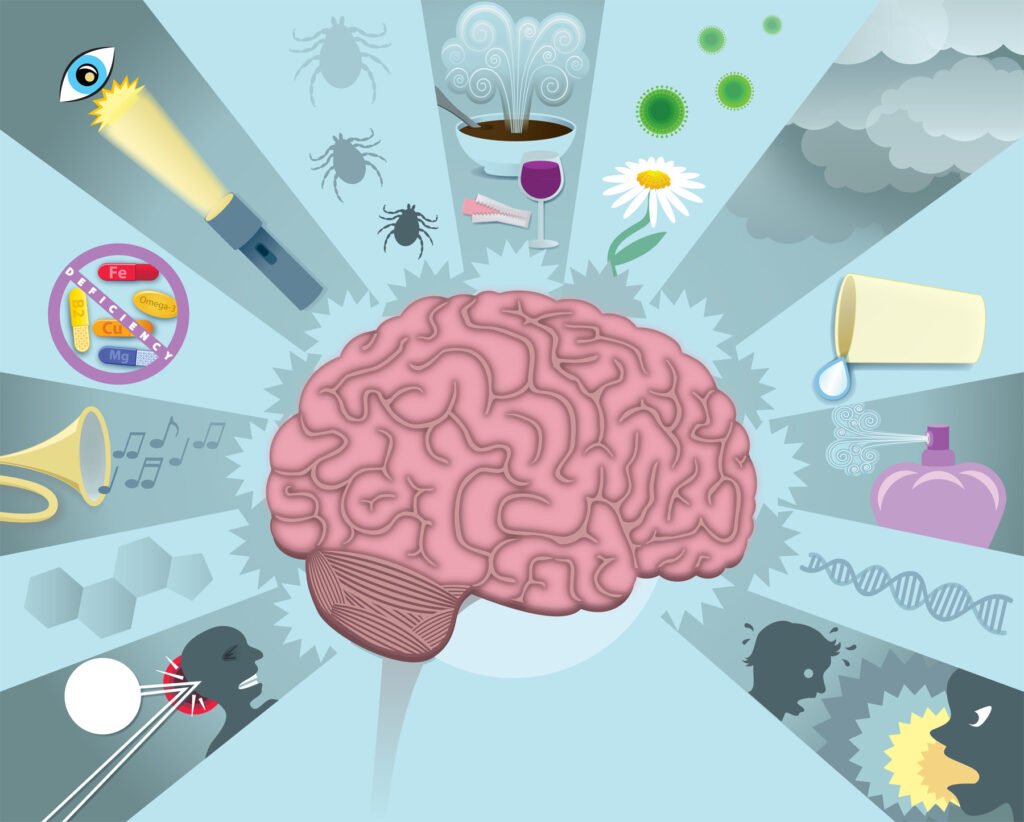
What triggers depression is unique to the individual. As I stated before, various factors can cause it to arise. Once the individual has contracted the illness, it is down to them to understand what triggered it and how to prevent its manifestation again.
Triggers can come in various forms – sights, smells, sounds, situations, people, employment, financial difficulties, bereavements etc. Anything we associate with a previous bout of depression can cause the illness to spill forth in the future.
One depressive trigger found in many parts of the world holds its own title – “Seasonal Affective Disorder” affects around two million people in the UK every winter.
Also known as the “winter blues”, it is caused by a reduced exposure to sunlight during the winter months, producing depression related symptoms in certain people.
SAD is a more recent phenomenon associated with our modern societies. Our bodies haven’t evolved since the time of our hunter-gatherer ancestors – when they would wake up at sunrise and go to sleep at sunset, and spend all day out in the sun, hunting and foraging for food and water.
Now, our routines are entirely different. We oftentimes wake up before sunrise and oftentimes go to sleep before sunset. We spend little time out in the sun, instead, we remain cooped up inside our houses or places of employment all day.
Due to this difference in routine – especially during the winter months when the strength of the sun’s rays is much weaker – our circadian rhythm becomes disjointed, our bodies become confused, and they struggle to regulate the production of the hormone’s melatonin and serotonin.
People with SAD will produce much higher levels of melatonin, the hormone that makes us sleepy. Juxtaposing that, their serotonin levels will be lowered, the hormone that affects mood, sleep, and appetite.
With these hormonal imbalances, sufferers will experience symptoms of depression for the entirety of the winter months. It is not known exactly why only some people are affected by SAD, however, once they have recognised this trigger, it is up to them to implement techniques to combat it. This can be done through various means such as: the use of a SAD light, more exposure to natural sunlight, exercise, and talking therapies.
Nevertheless, to understand all our triggers is key to tackling the condition. Sometimes this can seem hard to do. Think of it like this: if a loved one approached you and expressed their feelings of depression, one of the first things you might ask is, what has made them feel this way?
Once they explain the cause, you would offer them a solution to managing this trigger. It is much easier for us to advise others on their predicaments, but when it comes to our own pitfalls, we are often at a loss of how to resolve them.
Therefore, we must learn our triggers through journalling or filling out a chart. This can easily be done. Each day, jot down what happened to produce any depressive symptoms, then hopefully, by the end of the week, you should have a much clearer understanding of what triggers you.
If you need help with keeping such a diary, here is a chart I created:
| Day | What happened? | Thoughts and feelings it produced? | How long did my symptoms last? | How did I overcome symptoms? | What strategies can I use to avoid this trigger in the future? |
| Monday | | ||||
| Tuesday | | ||||
| Wednesday | | ||||
| Thursday | | ||||
| Friday | | ||||
| Saturday | | ||||
| Sunday | |
Either copy or print this out, fill it in, and then evaluate what triggers you. Once you understand your triggers, you can implement strategies to avoid or limit their damage in the future.
You might find that you are triggered more so on specific days because you are exposed to certain situations such as a job you hate, or a person you don’t get along with. Noticing aspects like this will help you reflect on what matters most – your wellbeing or the trigger.
If you’re unsure of how to fill in the chart, an example would be:
| Day | What happened? | Thoughts and feelings it produced? | How long did my symptoms last? | How did I overcome symptoms? | What strategies can I use to avoid this trigger in the future? |
| Monday | I saw the Facebook post of my ex-partner during my lunch break. | Loss of the relationship How I miss the good times we had Loneliness Sadness | For a few hours | I went back to work and focused on the tasks at hand, which took my mind off it. | Delete my ex-partner from all social media platforms. Realise the flaws in our relationship and why we broke up. Don’t perceive things so idealistically. |
Find Something to Care About
One of the deadliest forms of depression – and one which isn’t as widely recognised as say, somebody who embodies a relentless state of sadness – is apathy. A constant emptiness that leaves the sufferer feeling numb to everything and they lose all interest in any prior activities or hobbies they enjoyed.
This was the form of depression I coexisted with for many years. As my drug use continued to spiral, so did my uncaring attitude towards the world. I used to think something darker was going on. I used to believe there was something fundamentally wrong which meant I wasn’t wired up the same as other people; something was missing – that part which makes us human.
Little did I know this was just my depressed mind choosing to shed its emotions rather than let them consume me. Better to not care than to face pain and do battle. I cared for nothing and no one, I went through ten years of my life hanging by a thread.
Fortunately, though – although some of you won’t see this as fortunate – in 2020, amidst the thrall of the pandemic, I finally overdosed on drugs. As I was driven to hospital inside an ambulance with the belief my heart was about to explode, something clicked in me for the first time since I’d headed down this dark path (not even when my best friend died from an overdose did I have the same epiphany) – that I needed to care more about myself and in turn, the world around me.
Thankfully I survived the overdose, it wasn’t as serious as my drug addled body had perceived. From then on, I began, little by little, to care more. I cannot lie and say I stopped taking drugs from that point – stupidly, I didn’t, although I was much more careful – but I did start to immerse myself in self-awareness, to understand why I had abused myself for so many years.
For several more years I continued taking drugs, but each time I did (because of my own self-awareness), the feelings induced by the drugs became much different. I realised I didn’t enjoy them anymore, they were just my learned coping mechanism, and I needed to change that.
What I’ve learnt is, to defeat depression, you must find something to care about. This can come in all shapes and sizes. It can be your family, your friends, your studies, your career – anything which matters to you.
Even when we feel numb, there will still be something which, if we lost it, would make us feel less empty; which would awaken that human characteristic called sorrow. What you need to do is find that bright light which will penetrate your darkness. For me, it came in the form of a pet hamster I named, Coco.
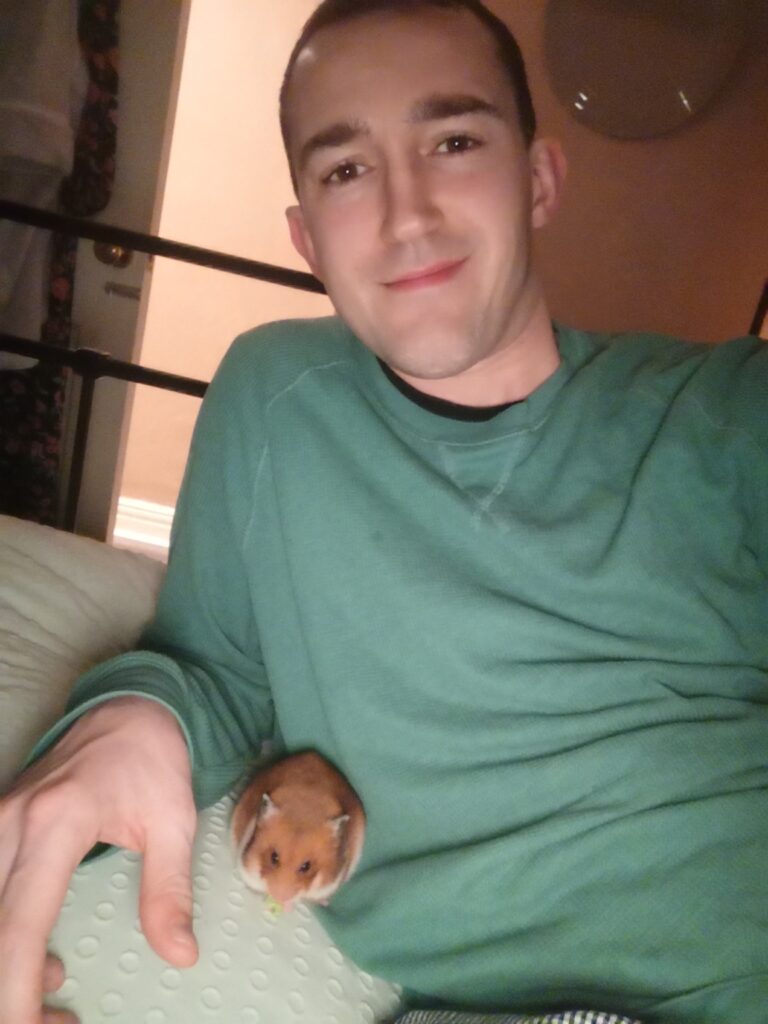
This is me with my furry friend who I bought from Pets at Home one year ago. I was off sick from my job after another bout of depression when I read somewhere that pets can give meaning to our lives.
Wherever I read that, I am thankful, because it worked. Now, I have another sentient being to take care of other than myself, and it has helped pull me from my nihilistic rut. I know I must feed and water her, clean her cage, and let her out of it every day to play – so how can I lounge around feeling sorry for myself?
She has brought empathy back into my life. Maybe some of you will wonder ‘How can a twenty-nine-year-old man care so much about a rodent?’ But let me retort with, who are you to judge? If it was a dog, would you say the same?
Nevertheless, this is what I am trying to emphasise – that your “something” to care about can exhibit itself in many mysterious ways. If you’d said to me even a few years ago that I would adore a hamster, I would have laughed and told you that you were crazy.
But I do. I love her more than the world itself. Just the other day I bought her a new wheel and watched as, seconds after putting it inside her cage, she climbed into it and ran around like a little Usain Bolt.
Just watching that simple interaction brought joy to my day. When she finally passes away it will be a great difficulty for me to overcome, but for now, I live in the moment, happy watching her, observing the cute and funny things she does, and through her unknowing aid, she has gifted me with the ability to care for life again.
So, if you too want meaning back in your life, find your own Coco, and that emptiness will be filled.
Do What You Enjoy

Often when depressed, the world seems so hopelessly murky that we lose all interest in doing anything other than staying in our beds. We are content when asleep, but when awake, we wish we weren’t, our eyes stretch wide open, they hardly blink, our minds turn blank or dwell on despair, and we reluctantly move from that safe-space only when we must, to use the toilet, get a glass of water, or a tiny bite to eat.
Every other aspect of our personalities – our goals, ambitions, dreams, hobbies – get demolished and the pieces lay scattered, still there but broken, ready to be pieced back together if we just try.
It is a miserable existence that we feel powerless to overcome. But it can be done if we hold onto that human strength which is always last to die – hope.
Hope is always there even when we think it is not. Aside from those so depressed they attempt to take their own lives; a twinkle of hope remains amongst those amidst even the deepest of depressions.
The hope for a brighter future. The hope to defeat the beast smashing against the bars inside our brains. If we harness that hope and embrace it, well, we can defeat the beast.
Think what you enjoy doing on an average day. You don’t have to think big. It could be as simple as having a morning coffee or watching your favourite film. Whatever it is, get up and do it. Do whatever it is that makes you feel a shred of joy.
Don’t wallow in self-pity. It is too easy to just lay down and take repeated kicks to the head. Inner strength comes from being able to stand up and fight back.
Once you have done that one thing you enjoy – do another, and another. Simple things which can be done from the comfort of your home. Drink that morning coffee. Follow it up by watching your favourite film. Pick up an interesting book and read it. Message a close friend online. Teach your brain it can still find pleasure in its suffering, not every moment has to appear so bleak.
You will find the more you reintegrate yourself back into doing what you enjoy, the easier it will become to do more and more. Eventually, your motivation will prosper enough so that you will be able to step outside again, breathe in the fresh air, bask in the sunlight, and shut out that inner darkness for good.
It will be a long process, but nothing humanity ever achieved was completed in a day. Do what you enjoy and eventually, you will defeat the darkness.
Meditation
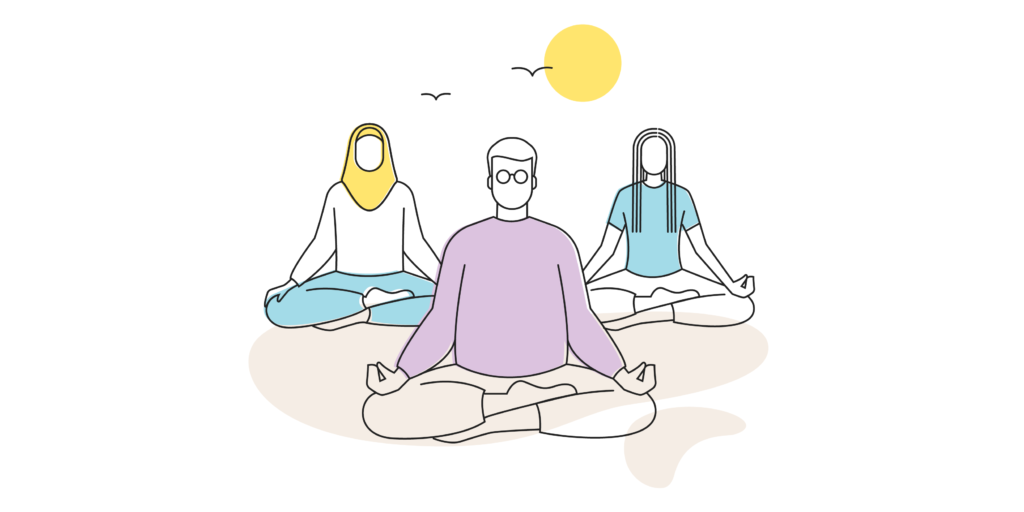
Meditation is widely perceived as being a bit “hippyish”; a bit out-there; for people who like to shag outdoors and hug the trees. Whilst these notions might not be untrue, the actual history of meditation dates to the dawn of human existence and has served our ancestors well since its creation.
Cavemen some 200,000 to 150,000 years ago sat around their campfires and conducted group meditations whilst gazing into the flames. Psychologist Matt J. Rossano argues that this fire-gazing ritual made us what we are today – it rewired our brains, gifting us with symbolism, and the development of language.
The earliest written record of meditation hails back to the Hindu Vedas around 1500 BCE. They described it in their ancient texts as being a practice used for their Science of Life – the Ayurveda. Meditation to them was used to connect oneself to one’s deep inner self, and whilst they meditated, they would listen to hymns which they believed recreated the sounds of the origins of the universe.
Meditation as a religious doctrine has been practised by many different groups across the globe. Buddhism is the most obvious one which springs to mind, often, the image of a Buddhist monk reveals itself when we think of meditation.
But can’t we agree that the monotheistic acts of prayer are forms of meditation too? Through their prayers they believe it grants them a connection to God. Every religion seems to have a meditative practice designed within its faith. This offers insight into the benefits of meditation – for thousands of years people have used it to gain access to a deity. Religious beliefs aside though, science too has proven the power of meditation.
Mindfulness meditation is the form of meditation that millions of people practice daily regardless of whether they are spiritual or not. It is lauded over for its many benefits towards a healthy life. It has been scientifically proven to: reduce stress and negative feelings, lower blood pressure, make people more self-aware and patient, aid with sleep, heighten memory retention, and boost their concentration and attention spans.
With so many benefits then, surely everybody should practice meditation? Well, as 17th century French philosopher Blaise Pascal once said: ‘All men’s miseries derive from not being able to sit in a quiet room alone.’
And he couldn’t be more correct.
Especially now, our brains are overstimulated from the moment we wake up, to the minute we go to bed. Our stress levels are much higher. Our concentration and attention spans are woefully pathetic. We wake up consistently throughout the night to check our phones, hardly ever getting a good night’s sleep.
More so than ever before, men and women and children are unable to sit in a quiet room alone with just their own thoughts. If you’re reading this and have never practiced meditation, think to yourself, when was the last time I simply just sat in a room without looking at a screen or listening to music or a podcast? A lot of you will struggle to remember such a time. This overstimulation has ravaged our minds and has played a big part toward the modern epidemic of depression.
So, heed this warning, if you don’t practice some form of mindfulness, you will find it hard to combat the illness. Spending all day glued to your phone or laptop or television will do nothing to alleviate your symptoms of stress – it will only aid in their fury.
Give meditation a chance and, within time, you will see some benefits from it. At first, you will sit down, close your eyes, and begin to meditate. You will feel stupid. Your mind will race. You will wonder, Fuck this. This is bullshit. It clearly isn’t going to work for me.
Give it time. Practice it daily. Start off doing just a few minutes. Work your way up to five, then ten, then fifteen – the longer you do, the more beneficial it is. But even a few minutes a day is enough to notice a change.
I shared those same thoughts and feelings you will have when I first started meditating a few years ago. But over time, I gradually trained my mind to block out thoughts for longer periods until now, I can go several minutes without having one. And when we’re amidst depression, isn’t this what we all want? To block out negative thoughts and have a moment’s peace?
Nevertheless, the point of meditation isn’t to cease all thoughts completely. Thoughts are inevitable and constant. Meditation helps us to accept those thoughts and move on, recognise our thought patterns and how to calm them.
To help you start practicing meditation, there are several apps you can download which offer guided meditations to talk you through the process. I know this defeats the purpose of blocking out all outer stimuli, but they are great to use for the first few weeks whilst you become comfortable with the practice. Here are a few apps you can use:
And there are many more. Choose the right one for you. Most of these apps have a limited number of free guided meditations, but they also offer paid subscriptions to unlock a wider range of services.
It is up to you whether you can afford to or not. Personally, I wouldn’t. It shouldn’t take long for you to feel ready to meditate on your own, so why pay? There are plenty more guided meditations on YouTube if you’re stuck for content on the apps.
Exercise
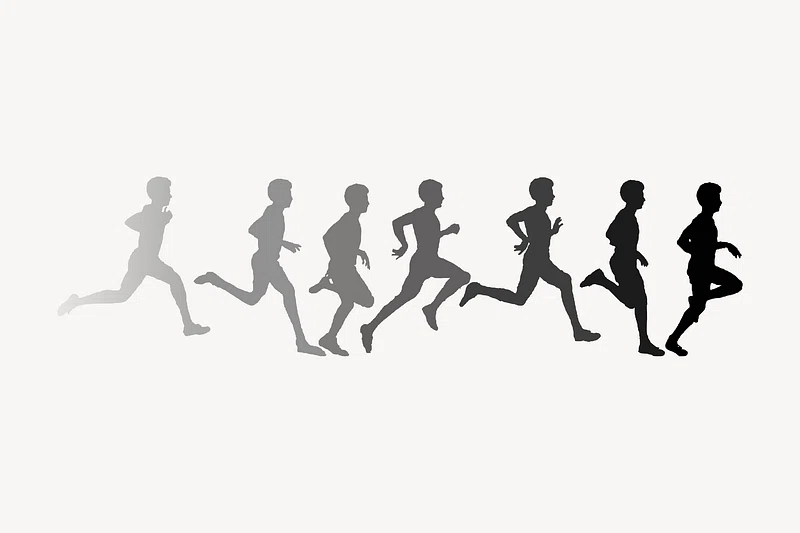
Exercise might be considered more approachable and widely accepted than meditation, however, to the depressed mind it is infinitely tougher. In fact, to any mind, exercise can be an unwelcome task.
Again, as I specified before, our bodies and brains haven’t evolved since our hunter-gatherer days when we ran around for hours throwing spears at mammoths. Back then, we exercised out of necessity for survival, meaning our brains were hardwired to seek rest wherever possible to conserve energy for future hunting endeavours.
Our brains love to rest. They love to sit around doing nothing. If you asked a caveman to go for a long-distance run for no other purpose than to burn calories, they would smash you round the head with a club.
Naturally, our brains don’t find pleasure in exercising without a purpose. So, when we go for a jog just to shed a few pounds, our brains initially abhor the prospect.
Nevertheless, in our modern world, most of us lead sedentary lives. We don’t run around all-day hunting for food. Most people on average only walk 5,000 steps per day. Our brains love this lack of activity; if it was their choice, they would continue to stay idle.
But the big difference between us and our ancestors is that our ancestors frequently exercised and maintained peak levels of fitness. They weren’t fat or weak, they were physical specimens to behold, and when they rested it was seen as a reward for all their hard work. They weren’t sat inside an office all day making spreadsheets or chatting to clients over the phone, they were outside exerting every muscle every single day.
Thus, we cannot allow our brains to hinder us. We must in some way adopt an exercise routine. Whilst our brains are adapted to seek rest, they also benefit massively from exercise. Exercise grants us a natural high – when we move our body and get our heart pumping, it releases endorphins which make us feel good. It provides stress-relief and boosts our mood. Therefore, it is a crucial component towards defeating depression.
The last thing you want to do when depressed is exercise. Even leaving your bed can be a laborious task. But this idleness is only causing your symptoms to fester. The more inactive you are, the worse your brain feels. It is counterintuitive to consistently rest when depressed. At first, it will help to rest, like recovering from the flu, but eventually, you need to get back into a routine.
See your brain as a small child: it might think it needs that shiny new toy, but really, the pleasure from that toy is only fragmentary, the child never needed it after all. In this respect, your depressed brain believes it needs to stay cooped up in bed all day, but to do that only provides it momentary pleasure. It is up to you to reinforce what it actually needs – and that is to move.
The beauty of exercise is, there are so many outlets for it. Running, swimming, cycling, football, tennis, rugby, weightlifting, even ten-pin bowling – all of these and many more can be used as forms of physical activity. Of course, some are more effective than others, but do whatever exercise works best for you.
One great way to kickstart fitness is to go for a walk. Walks provide all the positive properties any other type of exercise will. When you go for a walk, do it in nature. It is scientifically proven that for us to be amongst nature, it relieves stress and anxiety, and helps boost our mood.
Whatever form of exercise you decide to adopt, make sure to keep a consistent routine. Dependent on your fitness level, start off doing whatever is possible. It might only need to be half-an-hour a day, a few days a week. Build yourself up to doing more and more.
The recommended amount of exercise for an adult every week is: 150 minutes of moderate aerobic activity, 75 minutes of vigorous aerobic activity, or a fusion of both.
Each time you exercise, your brain might scream at you, telling you to stop. One way to combat this is to reward it in some way. For example, sometimes, when I go for walks or ride my stationary bike, I like to read a book. Reading allows me to block out those negative thoughts regarding the exercise.
Distract your mind like this in some way. Listen to music, a podcast, an audiobook; watch a movie or television show – whatever you can do to help you stick to your routine. I know I have opposed such stimuli before, but in this case, for the greater cause, they can be useful to coddle our tantrum-prone brains.
After a while of consistent exercise, your body and brain will thank you. You will feel much healthier mentally and physically. Lethargy induced by depression should lessen. You will gaze at yourself in the mirror and feel happier at what you see. Your confidence will heighten, you will feel more comfortable in your own skin, and then eventually, your brain will realise that exercise isn’t so bad after all, and each time you go to work out, it will relish it, rather than loathe it.
Read
According to Google, at this current time there are 129,864,880 books in the world. In the UK, the average life expectancy is now eighty years old. This means that even if the average Brit read one book a day from the age of four, they will read only 27,740 books in their lifetime. This covers a mere 0.02% of the total number of books in the world! Therefore, it would be impossible to ever make even a tiny dent in all this literature.
But with so much choice, surely it means there is a book out there for everyone. Why then, each year, do almost half the British adult population not read one single book? Why are we gradually reading books less and less?
It is a frightening prospect that eventually books could be eradicated; with nobody reading them, publishers become bankrupt, printed novels cease to exist, and instead, our only options are to download eBooks or listen to audiobooks online.
Whilst I have read a few eBooks in the past, there is nothing better than holding a paperback in my hands, escaping inside the pages, into a new world, where my worries are briefly forgotten, where it is a time to avoid looking at screens, and to sharpen my mind rather than dull it.
Reading is an effective tool that can be used to tackle depression. The fact you’ve read this far emphasises that. I won’t vilify you if you choose not to read a book, even reading articles such as this are better than reading nothing.
As a species we strive to move forwards rather than in reverse. Reading self-help articles or books are a constructive way to do this. We can connect with the writing, feel understood, think from outside ourselves, and alter our perspectives.
Reading expands our vocabulary, reduces our stress levels, and improves our memory, focus, intelligence, critical thinking, and concentration. With such an abundance of benefits then, the depressed individual must seek to harness it. No matter your background, no matter your personality, there is an author who will comfort you in your darkest hour.
I am an avid reader who currently tries to read a book a week. I have found solace in a range of different novels; a few of which gifted me knowledge on how to beat depression.
“The Depression Cure”, by Dr Stephen Ilardi, is a brilliant novel I advise everybody to read who suffers with depression. He discusses many of the topics I have written about in this piece.
But Charles Bukowski is the author who has gotten me through my darkest times. He was a functioning alcoholic whose novels and poems discussed the mundanity of menial labour, his self-medication with booze, and his tumultuous encounters with various women. He was considered the great American lowlife. His writing is hilarious, blunt, relatable, and easy to devour. I wouldn’t advise everybody with depression to read his books (you might relate too much with his apathy) however, he has filled my life with much laughter, and he is the only author whose books I choose to read time and time again.
Whatever your choice of reading might be – be it a book, a magazine, a newspaper, a blog, or an online article – spend a little time indulging in it every day. Educate yourself. Expand your mind. Find comfort in the words. Read more.
To go through life never experiencing literature – to me, is a wasted one. I suppose it is up to you whether you choose to read or not. Maybe you think it’s boring, but I deplore you, don’t be so narrowminded, that mentality won’t help you in any way.
Unfortunately, in a society where our attention spans have been pillaged by apps like TikTok, many people choose to read nothing because they are unable to concentrate on something for more than a few seconds.
If you use TikTok, think of all the time you’ve wasted watching its endless stream of videos. Sadly, you will never get that time back. Hours wasted watching imbeciles dance around foolishly on your screen.
Thankfully, I have never used TikTok, and I never will. I see it for the destructive entity it is. Hopefully upon reading this, you will feel the same. In my blog, “The Dangers of Social Media”, I elaborate on this opinion.
So far, you’ve read up to now, so you must have an interest in helping yourself. To do this, you must continue to absorb useful information from anywhere you can. So, keep reading. Don’t stop. And your brain will reap the rewards.
To find out the Top 5 Books That Changed My Life, click here.
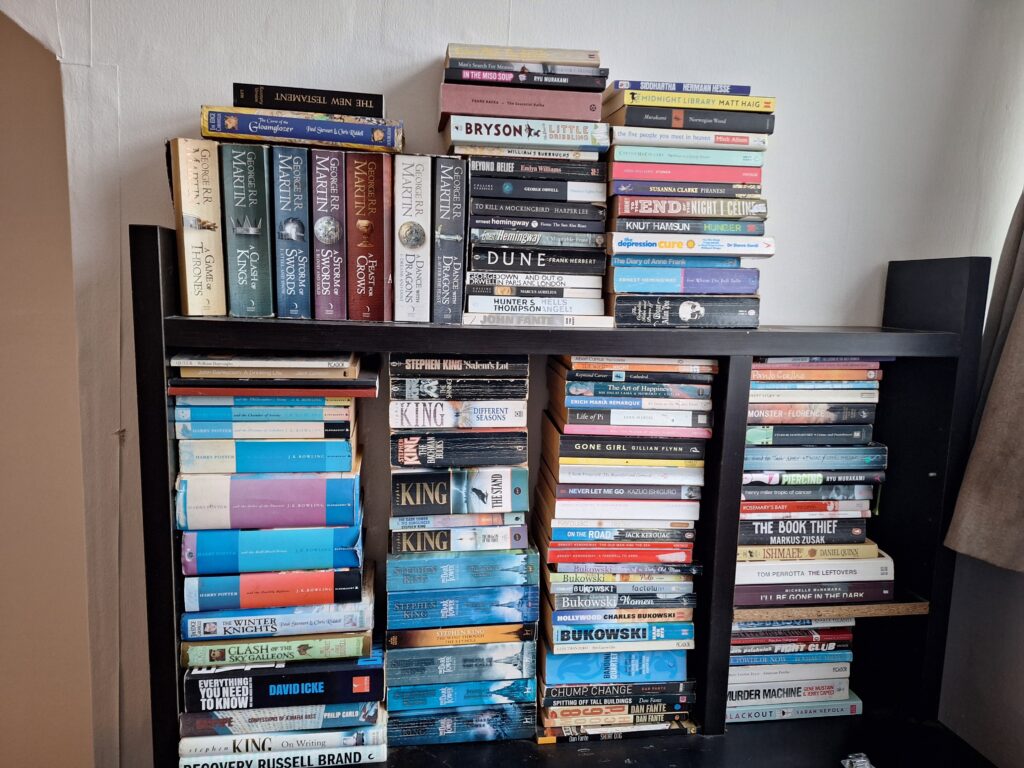
Find Your Life’s Purpose

Recently, I finished a beautiful book titled, “Man’s Search for Meaning”, written by Jewish Holocaust survivor, Viktor E. Frankl. Aside from being a survivor of the war, Frankl was also a renowned psychiatrist.
The first half of the book is about his experiences in concentration camps during World War II. The second half explains a psychotherapeutic methodology he created named “logotherapy” – the ideas of which were reinforced during his time as a prisoner in the camps.
The premise of logotherapy, in layman’s terms, is that every human being needs to find a meaning for their life. Without this purpose, depression will arise. He states that we can find our life’s meaning through three different ways:
- By creating a work or doing a deed.
- By experiencing something or encountering someone
- By the attitude we take toward unavoidable suffering
Frankl cured many patients’ depression through his logotherapeutic techniques. He didn’t do this by telling them exactly what they must do to overcome their illness, instead, he left it up to the individual, wherein, through talking therapy, they themselves reached the conclusion of what was the meaning for their life. Miraculously, once they’d decided upon that purpose and began to focus on it, gradually their symptoms of mental illness disappeared.
We should all read Man’s Search for Meaning, and we should all follow Frankl’s guidance. The modern world is often nihilistic, so many of us feel without purpose. We work in jobs we hate that provide us no meaning. We spend our free time glued to screens or buying pointless objects or drinking ourselves into stupors just to ease our pain.
We are a broken society filled with lost sheep who need to be guided and told what to do. The problem is nobody can tell you how to live your life. You can read articles like this which offer tips on how to be a better person, but I cannot fully guide you toward your life’s purpose. I can only help you gain clarity so that you can hopefully find it yourself.
But you do need to find it. And that is why I have left this tip until near the end – because to find it is hard, especially when depressed.
By now, if you’ve implemented the previous techniques I described, you should have some normality back in your life. If not, then you must seek professional help.
But, if at this point, you do feel much better, now is the time to hunt for what will make you happy long term. To do this, you must brainstorm what you are passionate about in life: what can give your life meaning.
This meaning can come in many different forms. It can be your partner or child or another family member. It can be through helping others by volunteering for a charity. The most distinct purpose for living though can be found through work.

It took me thirteen years (since I left school) to find my own life’s meaning, and that is to write. I spent so many years working in jobs I despised, my psyche demolished, lost, on the verge of giving up, deciding these were just the cards I’d been dealt – to work menial jobs, get fucked on the weekend, and be depressed forever more.
Fortunately, though, whenever I sank into a deep depression that required me to take sick leave from work, there was one thing I went back to whilst having time off, one thing that brought me happiness whilst stuck inside my house for days on end.
I was always a creative person. In my school years I loved to draw, it was something I was talented at. From the ages of three up until fifteen I was basically drawing every day. I took GCSE art and was predicted to achieve a high grade in my final exam.
Then, I started drinking and taking drugs, and my grades plummeted. I stopped drawing for pleasure. I began to see it as a chore. I failed my art exam and a bunch of other subjects. My talents were wasted. I stopped drawing altogether. But I was having fun, right? So, what the fuck did it matter.
After dropping out of two colleges, still deep in addiction, I seized a final chance at a third. I went to Leeds City College to study journalism, and I was reopened to a creative outlet – which was writing.
All my life I loved reading. In school, I enjoyed writing stories or making comic books. Thus, a passion for writing was always there, I just didn’t realise I had it.
At Leeds City College, I tried a little harder. I managed to pass my BTEC. I got a high enough grade to apply to university. Even though I still didn’t really care about my education, there was a dusty jewel of ambition which shimmered faintly in the darkest depths of my core.
I was accepted onto a Creative & Professional Writing degree at Leeds Trinity University. Stupidly though, for three years, I again wasted my chances. I should have immersed myself in the course, honed my skills, done something with my writing. But I didn’t. I did the bare minimum.
Somehow, I passed with a 2:1, without hardly trying. Upon completion, I wasn’t motivated or confident enough to chase a writing career. Instead, I continued to work in warehouses – miserable, consumed by inner chaos.
Fastforward to the end of 2023, after losing my last warehouse job, I put into practice the tip I am describing to you now – to find my life’s purpose.
I realised there was nothing else that would make me happy other than to write. I didn’t have anything else which would give my life meaning. Finally, with this newfound clarity, I am now determined to do something about it, and since I found this purpose for being, my depression has mostly been vanquished.
Now I wake up every day ready to write, ready to add to this article, full of ideas for more, each day a stepping stone towards a higher purpose – and that is to make money through my art. I no longer feel lost and hopeless. I have a vocation, a purpose for being alive.
You too can find your purpose. Every man or woman has one, often we are just clueless as to what it is. Once you have found it though, base your life around it. Make it part of your everyday routine.
Set yourself goals. Strive to achieve them every day. When you start to build momentum, positivity will flourish, and you will see exponential changes in your life.
If we continue to make bad decisions, bad consequences will only follow. Flip this on its head. Start to make positive ones, work towards fulfilling your life’s purpose, and you will find that unsurprisingly, happiness will follow.
This isn’t to say hardship will never find you again, but as Viktor Frankl once said, we can find a meaning for life through the attitude we take toward unavoidable suffering too.
The Japanese have their own concept called, “Ikigai”, which refers to our life’s purpose. In my article “Ikigai – The Japanese Reason for Being” I delve into it further.
Forgive Yourself for Your Mistakes
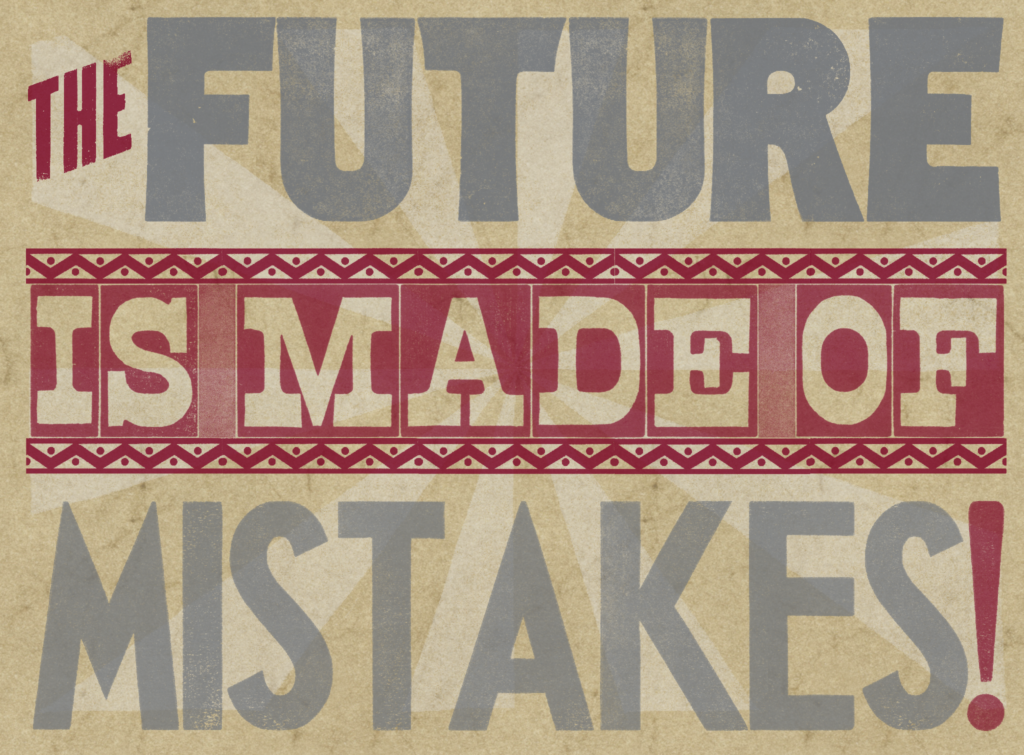
Finally, this is the tip you all need to hear. Right now, you are in for the fight of your life. Depression is an illness more difficult to overcome than most physical ailments.
On this road to recovery, you will encounter many bumps along the way. There will be days when you don’t exercise or meditate or read or do anything else I suggested simply because you don’t feel like it; you’re too tired; too down in the dumps.
Don’t beat yourself up over it. You need to forgive yourself for these mistakes. Nobody is perfect. We are all human, and despite being such intelligent creatures, we were constructed with many flaws. It is how you choose to rectify these mistakes which will dictate your commitment to beating the illness.
If you didn’t exercise today, work out tomorrow instead. Had a few drinks after work? Fuck it, just try stay sober the rest of the week.
There are no failures on this path towards self-improvement. Any loss can be learnt upon and transformed into a win. No matter your shortcomings, always strive to do better the next day and the day after that.
It is a long process where often, you might think, ‘What’s the fucking point?’
Remember, this is just your inner Negative Nancy speaking. We don’t listen to her, do we? No, we get up and do battle with her every day.
I have lived with depression for a large portion of my adult life. Yet, it was only in the last few years I realised I had the illness. For many years, unintentionally, I made mistake after mistake after mistake, until my life was in ruins, and only recently, have I started to piece it back together.
Rather than hating myself for all these mistakes, now, I understand they have led me toward being the man I am today. I am still not completely content with who I am, but right now, for the first time in a long time, I guess I’m okay, and after reading this, I hope you will be too.

4 responses to “10 Tips for How to Defeat Depression”
[…] and of course, facing your fear, have all proven successful ways to do this. In my next article, “10 Tips for Defeating Depression” I explain the benefits of exercise and meditation in much greater detail. […]
[…] my previous article, “10 Tips for Defeating Depression”, I wrote that in 2023, 1 in 10 British adults were found to have no close friends. […]
[…] like Viktor Frankl’s logotherapy, ikigai is the belief that every human life holds a unique purpose that they need to fulfil to be […]
[…] There are far too many novels for any single human being to devour in their lifetime. So much potent… […]